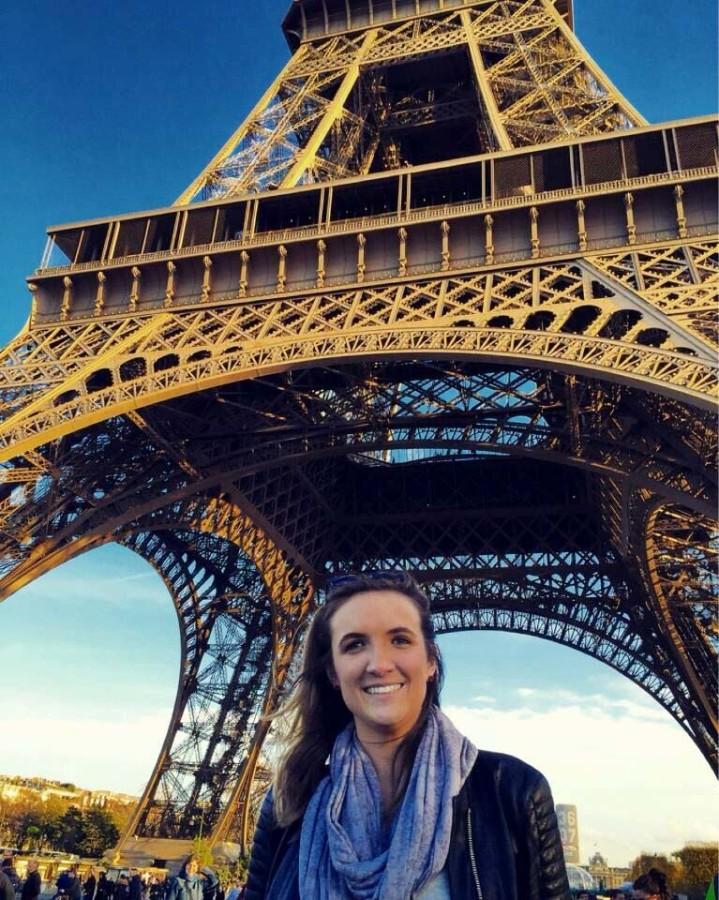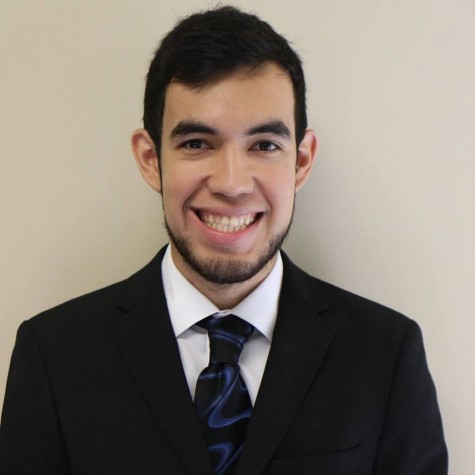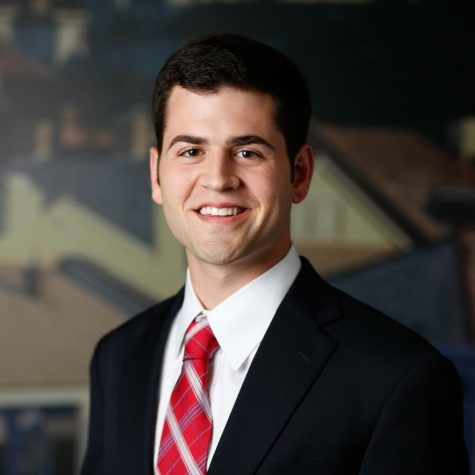You will not have my hatred
November 19, 2015
It was a weekend trip to Paris.
Leah Glenday had the whole trip planned from start to finish.
But then gunshots rang through the City of Lights.
“We realized that the gunmen were approaching us and coming closer, closer, and closer,” Glenday said. “No time for fear really, it was get yourself to safety and figure out what’s going on after.”
Glenday, mass communication junior, is studying abroad at Florence University of the Arts in Italy. She and her friends had decided to go to Paris for a few days to visit.
As she was exploring Paris by night, she stopped into a McDonalds to connect to the Internet when her phone rang with messages.
“All of a sudden I had gotten messages asking if I was okay, if things were going wrong,” Glenday said.
Glenday and her friends had heard that there were gunmen shooting up restaurants along the streets they were headed to.
The group was safe from harm, but Glenday said she felt lucky and knew that if she did not receive a warning text, she may have been killed.
“We heard right before midnight that the closest McDonalds to us had been bombed by a suicide bomber,” Glenday said.
On Friday, Nov. 13, the world discovered that terrorists had attacked six locations within Paris with guns and suicide bombers. The attack claimed the lives of 129 individuals and injured over 300, some of which are still in critical condition.
The Islamic group referred to as ISIS claimed responsibility for the attack.
At a press conference after the Paris attack, President Obama stated, “This is an attack not just on Paris, not just on the people on France, but an attack on all humanity and the universal values we share.”
Tristan Le Bras, foreign exchange student from Paris, said he was deeply shocked seeing violent attacks in the same place where he grew up.
“I checked my Facebook and noticed that my sister and father tried to call me several times. I skyped with my sister the rest of the night. All the attacks took place in our neighborhood,” Le Bras said.
Le Bras said it took an hour to find out if his mother, who was traveling home from London, was safe. It also took him two hours to find out that all his friends were safe from the attacks.
Le Bras said that at first he felt shock, followed by relief and then guilt about being away from home while the attacks happened in his own country.
“All the attacks were in places that I used to see every day. When I saw scenes on the news, I felt involved, this is my city, this is my place, these are my streets,” Le Bras said. “You feel totally different when it is happening. It’s an intrusion in your life.”
Malaika Lucien, economics junior, was studying abroad in Paris at Ecole Supérieure Du commerce extérieur and recalled what happened on Nov. 13.
“At around 9 p.m., we realized that there was an attack going on,” Lucien said.
The whole feel of the city changed within only 20 minutes.
“We had no idea it was a planned and organized terrorist attack,” Lucien said.
Lucien was safe, but she said that instead of people walking around the city, there were police everywhere.
“The next day it was like the apocalypse,” Lucien said. “You can’t really grasp how scary a situation like that is when you hear about it versus living there it’s like your whole entire world turns upside down because you know you’re not safe anymore.”
Dr. Brad Petitfils, co-director of the Paris study abroad program, said that he was in disbelief after learning of the attacks.
“You don’t process something like this quickly. It is troubling to me and to people who know and love Paris because it is such a very laid back city,” Petitfils said.
Petitfils said that he does not think students should be afraid to study abroad in Paris or to other countries.
“With every major city, there are both safe and not so safe neighborhoods. We would never allow students to go explore certain places without anyone being there,” Petitfils said. “To question study in France, I think, is unfortunate because the same thing could happen anywhere.”
Debbie Danna, director for the center of international education, understands that after the Paris attacks, students and parents are concerned about safety during study abroad.
“We were quickly able to verify that our students were safe through emails, Facebook, and through returned study abroad students who were friends with those abroad,” Danna said.
Alice Kornovichm, French professor at Loyola, said she found the act of terrorism in a city that she loves so dearly shocking and devastating.
“It was a horrifying act that I found, half-shock and half-heart break for those who love the city,” Kornovich said.
Kornovich said she is confident that Paris will bounce back from these events.
“Paris has a history of surviving terrible, tragic events,” Kornovich said.
Le Bras said that he has heard that there is a different mood in the city now.
“I’ve heard a lot of people are taking out there guitars and singing. There was a guy in front of the concert hall who took his piano and started to play ‘Imagine’ by John Lennon,” Le Bras said. “They want peace inside and war outside. Push away the horror and go back to a happy lifestyle.”









